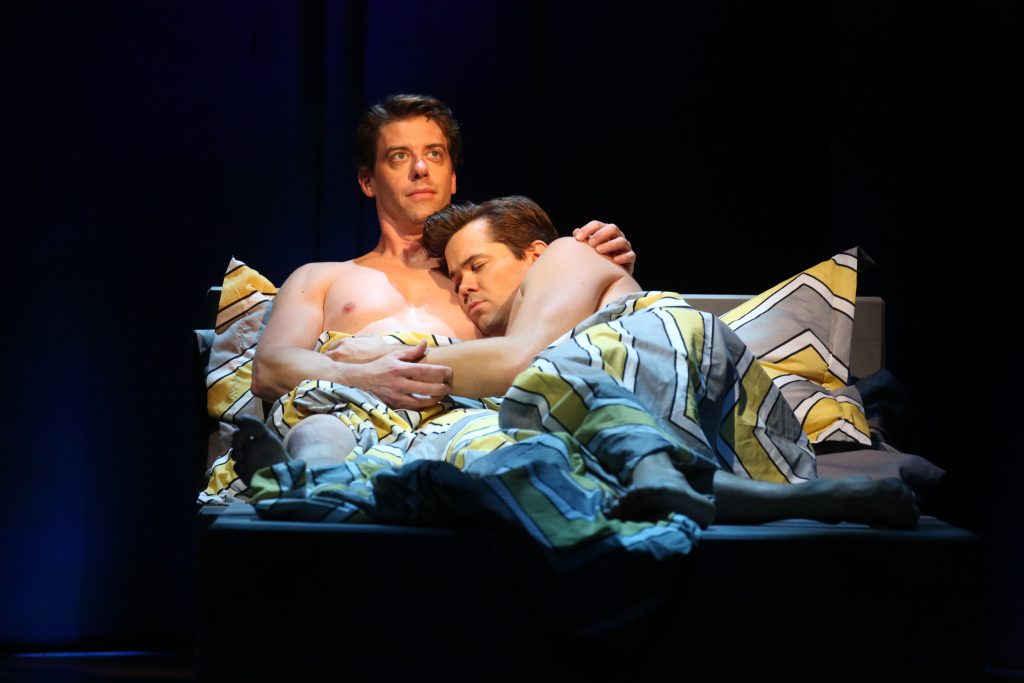
“It's about time, don't you think?”
When the decision was made to bring William Finn and James Lapine's seminal gay musical Falsettos back to Broadway for its first revival since wowing audiences and winning Tony awards 24 years ago, Finn was “petrified.” “You know, people were saying, aren't you excited the show is being revived? And I was really nauseated. I've seen it one time in the past five years. And I thought it was all right, but I didn't know that other people would,” he explained.
Finn was concerned that Falsettos, a musical set in the 80s last performed on Broadway in the 90s about a gay Jewish man who leaves his wife and son to be with his male lover, who later develops AIDS, would be an antiquated story in the era of marriage equality and PrEP.
However, as audiences soon discovered, Falsettos is more timely than ever.
Below, check out our top 10 reasons why 2016 is the perfect year for this iconic show to return to the stage, and why every gay person should see it.
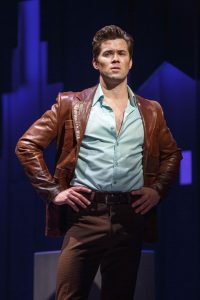
1. Witness the power art can have on social change.
Though today considered a pioneering musical about the LGBT experience and one of the most important chapters in our history–the emergence of the AIDS crisis–Falsettos was avant garde in its day because LGBT representation in theater, television and film was virtually non-existent. Falsettos and other works left an indelible imprint on those who saw it, an imprint that helped spur change.
While we live in a more LGBT-friendly time, there are still those who seek to dehumanize us. Consider last week's election. Consider the fact that the next Vice President of the United States tried to divert HIV/AIDS money to fund anti-gay conversion therapy. Consider the fact Falsettos centers around a character who develops AIDS; consider that his lover is Jewish, and consider the anti-semitic, xenophobic, and bigoted undercurrent in this year's election that just gave Donald Trump the White House.
In other words, tolerance, let alone acceptance, is being challenged.
As Barbara Walsh, who played who played Trina in the original production of Falsettos, told BuzzFeed News,
“Historically there's so much that's taken place for the gay community. In some ways, we're a different world. In some ways, we're more tolerant. In some ways, we're not. I think it's relevant — like, beyond relevant — because our tolerance in this country is being questioned and challenged.”
2. A reminder of a devastating time.
Though we thankfully live in a time where HIV is no longer a death sentence, it's important to remember just how devastating the AIDS crisis was on an entire generation of gay and bisexual men who found their lives upended and in many cases, quite simply, ended. Said former NY theatre critic Frank Rich, “It's probably a good thing, among its aesthetic virtues, ‘Falsettos' will remind people of a bit of history that seems now to be vanishing, as so much does in America, to amnesia.”
And as Tuesday's election has shown, those who do not learn from history are doomed to repeat it. With LGBT history rarely taught to today's youth, we need to make sure we are standing up and telling our stories–and telling our histories–is still politically necessary.
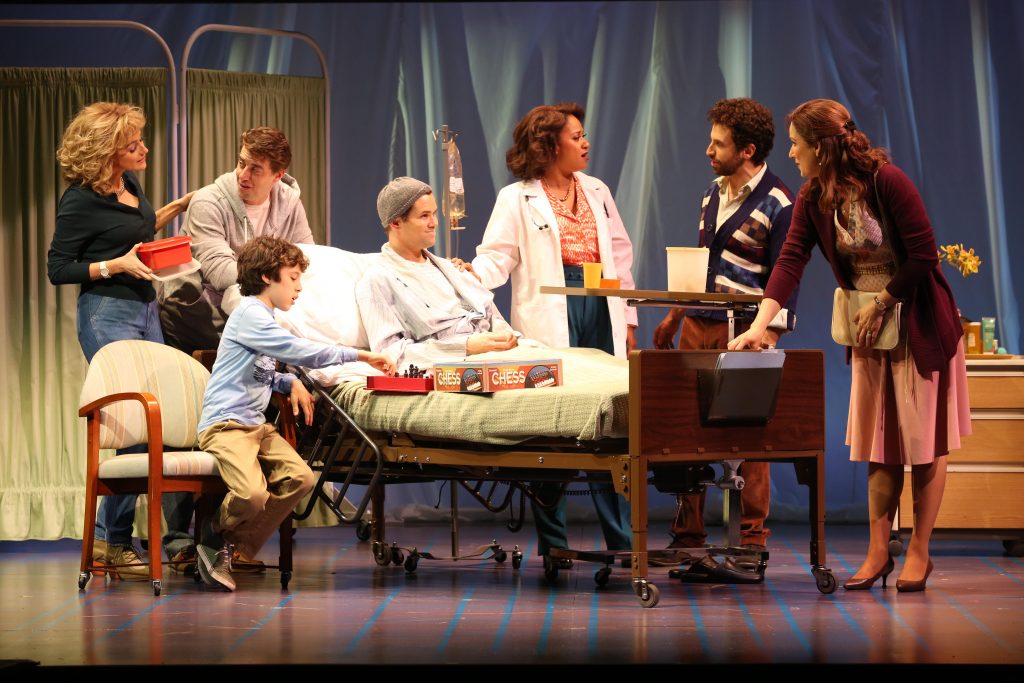
3. Falsettos is about family.
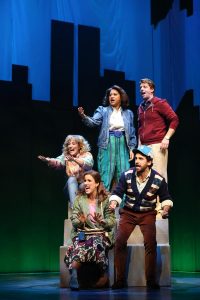
Said actor Andrew Rannells of the play, “It's such a beautiful depiction of what that is, that you can make and extend your family with the people who are around you and maybe it's not exactly the one you were born into, but these unexpected people that come into your lives that you really fall in love with and bond with and I think that's another really beautiful aspect of the show.”
Co-star Christian Borle agrees: “I think what resonates now, given the changes that we've seen, happily, is the family part. Trying to figure out what family means now. We are still trying to create new families. That clumsiness of these people trying to sort that out, I think, is what people will recognize very clearly in this day and age.”
Original cast-member Michael Rupert recalls that even when the story debuted on Broadway in 1992, there was an awareness among the show's creators that Falsettos was really at its core about family: “When we were putting it together, Lapine kept saying, ‘This is not a gay story. This is a story about family and about relationships.' Everyone in the audience could identify. They felt loss. They felt separation. So many of the things that Falsettos was about, they'd been through.”
4. Get a window into the AIDS crisis as it was happening.
Beyond recording the factual history of the time, Falsettos proves helps us understand how LGBT people were processing the AIDS crisis as it was happening.
Says Andrew Rannells, “Those were all things that were happening in real time, so it was extremely timely and extremely moving in a different way because it was happening in that moment, they wrote it in that moment that it was all going on. Now we look at it and I think we take it in stride a little bit differently, but when they wrote it all together that was really groundbreaking stuff.”
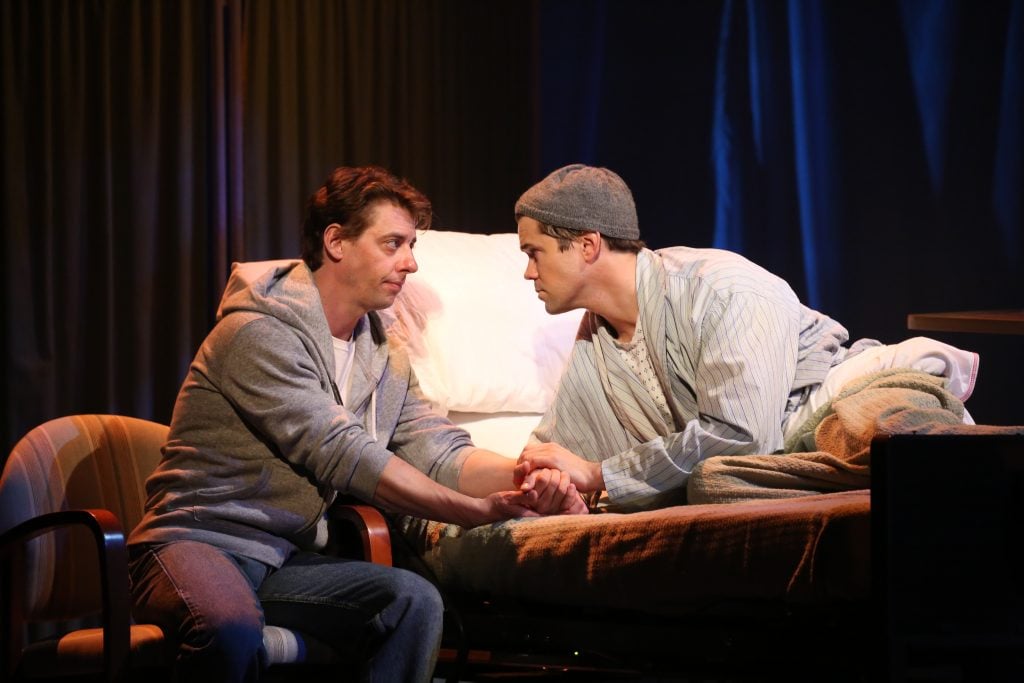
5. Before there was Modern Family, there was Falsettos.
While we are all-too-familiar with LGBT characters taking center stage on sitcoms like Modern Family, Will & Grace, and Transparent, that is in large part thanks to the trailblazing done by Falsettos. It was radical in its time for depicting a ‘modern family' where a man left his wife and son to be with the man he loved. That would still cause a scandal in 2016 but not for the same reasons, and certainly not in the same way. Falsettos dared audiences to imagine that LGBT people could form families of their own.
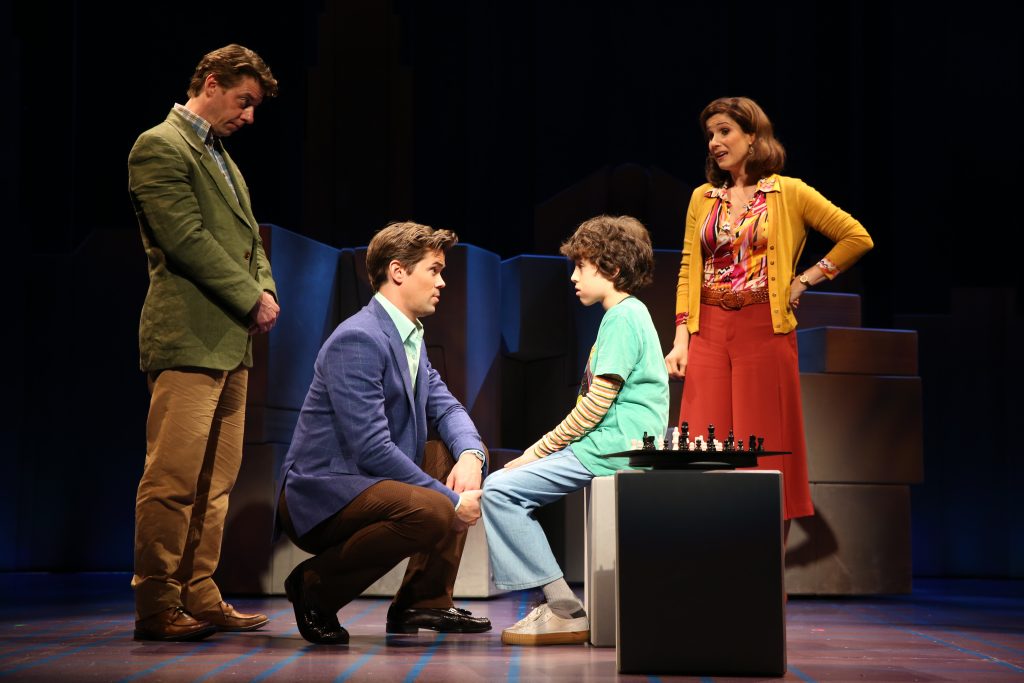
6. This is the origin story of Marriage Equality.
It is often noted that we would not have achieved marriage equality were it not for the bravery and heroism displayed by LGBT leaders in response to the AIDS crisis. Their activism laid the foundation for the fight for the freedom to marry and the fight that is currently underway to secure full LGBT equality across the country. So it's worth re-winding the clock to take a look back and see what life was like on the eve of the AIDS crisis and see how much we've changed–and how much we haven't.

7. Gay men still struggle to ‘grow up.'
“It's about men trying to grow up,” William Finn once said of Falsettos, and that's a struggle gay men still relate to today. For all the progress we've made, we lost a generation of role-models to the AIDS crisis. This has made the task of growing older as a gay man harder when we haven't always hd queer ancestors as role models.
In less dire ways, gay men of today are often coping with the same woes facing the characters in Falsettos. Director James Lapine says, “…these people, who might have been immature and carefree at one point, now [have] to deal with the grimmest of realities.” That pretty much sums up growing up in addition to bleak reality the characters in the play confront.
“It's about time to grow up, don't you think?” the players sing. “It's about time to grow up and face the music. It's about time.”
8. Falsettos isn't a time capsule, it's a mirror.
The realities of our daily lives may have changed since Falsettos first opened on Broadway, but the themes have not.
As Christopher Isherwood of the NY Times wrote, “The plague of AIDS no longer claims lives in the numbers it did in the 1980s (although it still takes far too many). And definitions of masculinity, a sharp undercurrent in the show, have expanded considerably. But ‘Falsettos' never feels like a singing time capsule. Its fundamental subject is that mysterious, maddening, uplifting, life-complicating emotion we refer to as love, which hasn't changed in 25 years — or, for that matter, many more than that.”
Speaking of love…
9. Falsettos proves what we already know: Love Is Love.
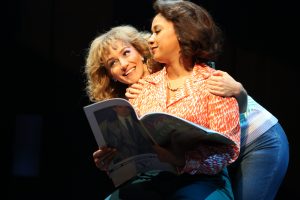
At the end of the day, this is a play about love and that hasn't changed, nor has the value of love in this day and age.
The characters in Falsettos sing what we've long known to be true, “Love is blind / Love can tell a million stories / Love's unkind / Spiteful in a million ways.”
Falsettos was clued into the significance of love two decades before marriage equality would become the law of the land in this country and ‘love is love' would become its battle cry.
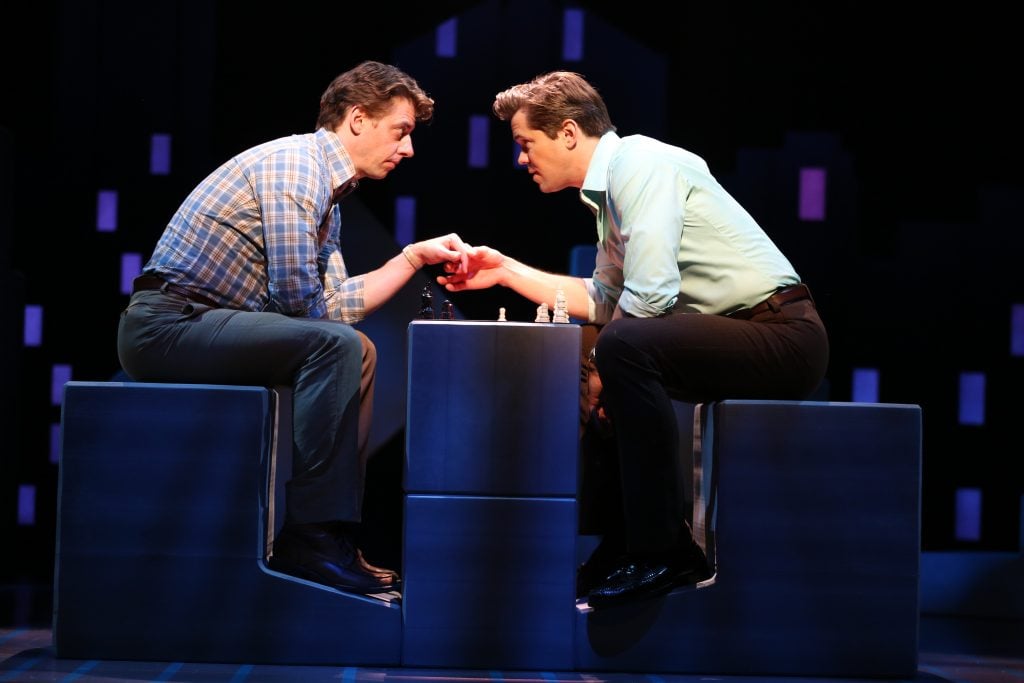
10. Falsettos resonates MORE today than it did in '92.
Much of what was being shown in Falsettos would have been considered radical by many people in 1992 America. Yet today, the families and friend communities in the play resonate with audiences everywhere, proving that this play is relatable now more than ever.
Lincoln Center Theater producing artistic director André Bishop explains, “We, the theatergoing audience, have caught up to the show…That vision of what a family might be was a dream. And now, to some degree, it has become a reality.”
Falsettos may have been ahead of its time but now it's perfectly in sync with where we are.
Producer Ira Weitzman said to writer William Finn of his work, “Stuff that you wrote, Billy, that was a little out there when you wrote it now has a context and history that seems of this moment.”
He added, “Everything came true that was in that show.”
So what will we dream of next?



